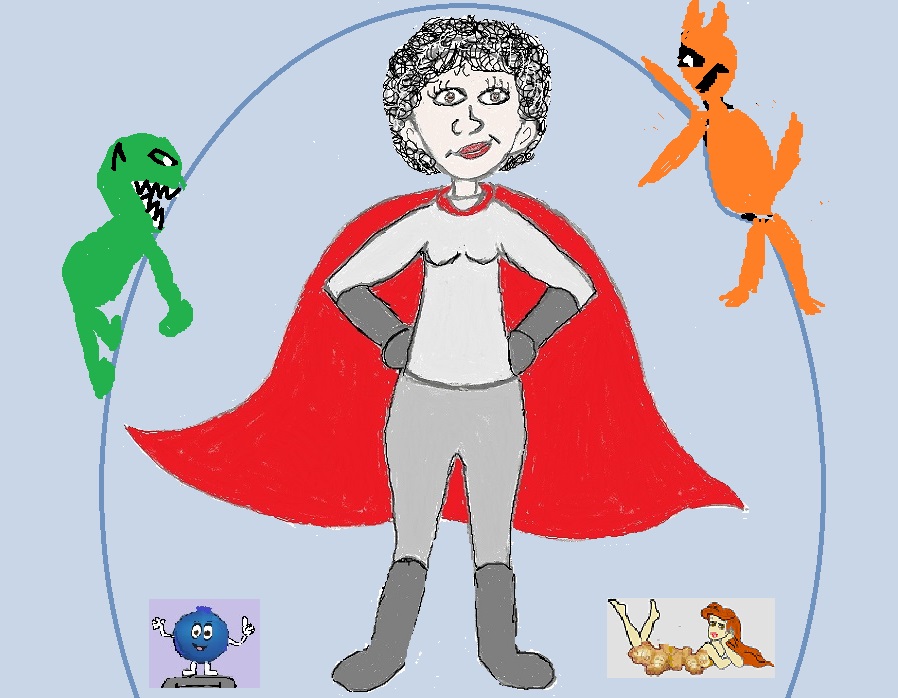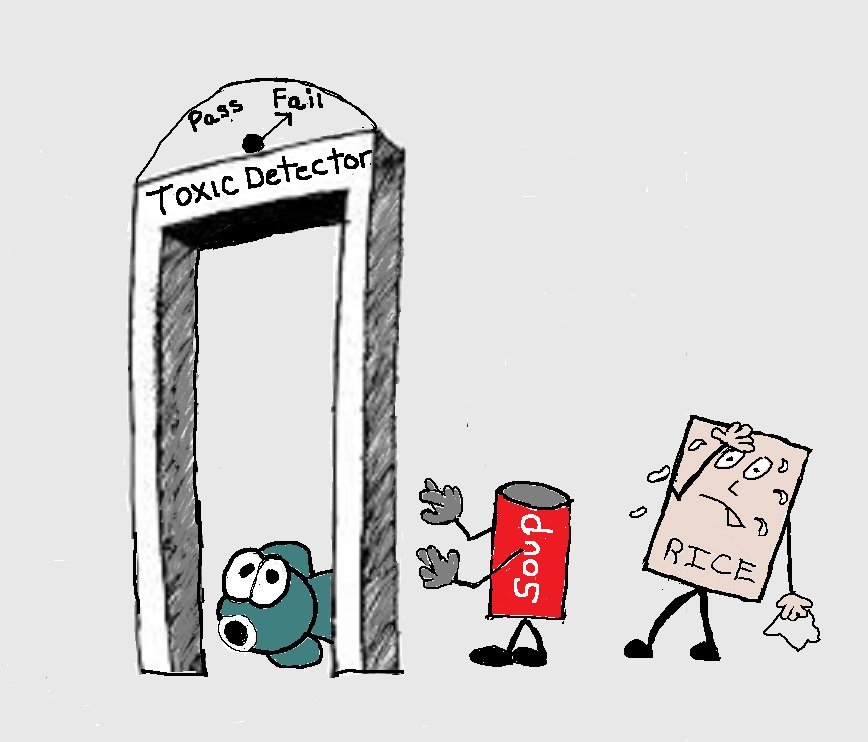- Home
- Polys & Superfood
- Superfood Benefits of Ginger
The Superfood Benefits Of Ginger
I get motion sickness just lying in a hammock, so I knew about a few of the superfood benefits of ginger my whole life. What I didn’t know, even after decades of less toxic living, was how well ginger can protect you from toxic chemical exposure.
Of course the best way to protect your health is to reduce your exposure by using nontoxic and less toxic products. But it’s impossible to avoid all toxic chemical exposure. There’s some exposure you just don’t have any control over.
Since exposure to toxic chemicals can lead to numerous health problems, it’s important to add allies to your diet that can protect your body from the effects of exposure.
I know a lot of people focus on detox fads that promise to remove body toxins to protect their health. At best these fads have short term effects, at worst they are completely useless and/or unhealthy.
But under all the detox hype there are superfoods and spices that can protect you from toxic chemicals. And based on a wealth of scientific research, the superfood benefits of ginger includes potent protection from toxic chemicals.
Beneficial Components of Ginger
Ginger is the root of Zingiber officinale and is one of the most used spices in many countries. For centuries it’s also been used to treat issues like nausea, rheumatoid arthritis, neurodegenerative diseases, inflammation and asthma.
And there's a lot more going on in those knobby knots of ginger than you thought. Ginger root contains both essential volatile oils and non-volatile pungent compounds. The volatile oil components consist mainly of zingiberene (35%), curcumene (18%), and farnesene (10%).
Ginger contains 80–90 nonvolatile compounds that contain biologically active components, like gingerols, shogaols, paradols, and zingerone, which causes that “hot” sensation in your mouth. Among them, gingerols make up the major bioactive components in fresh ginger and shogaols are the major bioactive component in dried ginger.
That’s because when you dry ginger, gingerols are converted to shogaols. Zingerone is also mostly absent in fresh ginger but cooking or heating transforms gingerol to zingerone.
The biological activities of the pungent parts provide the numerous superfood benefits of ginger.
Examples of Bioactive Compounds in Ginger and Their Superfood Benefits
|
Gingerol and gingerol-related compounds |
Antioxidant activity, anti-tumor activity by inducing cell death and modulation of genetic activity, anti-inflammatory and anti-analgesic activity, antimicrobial activity, and protects the liver |
|
Paradol |
Antioxidant, anti-cancerous, and antimicrobial properties |
|
Shogaol |
Antioxidant, anti-inflammatory, anti-cancerous activity by inhibiting cell invasion and anti-proliferation activity (inhibits growth of tumor cells) |
|
Zingerone |
Antioxidant activity, anti-inflammatory, and anti-bacterial properties |
The Superfood Benefits Of Ginger
A large 2016 cross-sectional study examined the rate of chronic diseases and the daily ginger intake of 4628 participants ages 18 to 77. The researchers found a link between the level of ginger intake, from 0–6 grams per day, and the prevalence of chronic diseases.
They concluded the probability of illness, especially hypertension or heart disease, decreased when the level of daily ginger intake increased. They also suggested daily intake of 2 to 4 grams of ginger might prevent chronic diseases.
And there's a great deal of research that suggest that the reason that ginger can protect your from disease is because protection from toxic chemical exposure is one of the multiple benefits of ginger.
To protect you from toxic chemical exposure, ginger is a powerful antioxidant, an anti-inflammatory and has anti-diabetic and anti-obesity effects. It also protects your gut and liver and has cancer prevention properties.

Ginger Protects Your Liver
An extremely important, I think the most important, protox benefit of ginger is that it protects your liver from toxic chemical exposure. Your liver is your body’s detox machine. It’s your first line of defense against toxins.
It protects you by breaking down toxins that you’re exposed to into forms your body can eliminate. But, that also means it’s the target organ most often affected by toxic chemicals.
And all the major functions of the liver can be damaged by acute or chronic exposure to toxic chemicals like glyphosate, BPA, and arsenic.
For example, some fungicides cause inflammation in your liver that can lead to scarring. Arsenic and glyphosate exposure contributes to a fatty liver. In fact, it now appears that a fatty liver (NAFLD) may be the most common response to toxic chemical exposure.
According to recent studies, a superfood benefit of ginger is that it can protect your liver from the effects of chemical exposure. In many of these studies the livers of animals were first damaged by toxic chemicals like fungicides and arsenic.
Specifically, what these studies found was that taking ginger
can prevent and reduce the amount of damage to your liver caused by exposure to
a variety of toxic chemicals including:
- alcohol
- acetaminophen
- arsenic
- bromobenzene
- cadmium
- carbon tetrachloride
- fungicides
- iron
- lead
- lindane
- mercury
- organophosphate pesticides
- parabens
Ginger protects your liver because of its ability to scavenge free radicals and reduce the damage to cells caused when free radicals "steal" electrons from the lipids in cell membranes. This reduces inflammation and oxidative stress.
It’s also been reported to reduce liver fibrosis (scarring) and liver cell death and support your body’s antioxidant and detox systems. Plus, because it lowers triglycerides taking just two grams of ginger a day can also improve NAFLD.
Ginger Is A Powerful Antioxidant
Your body creates toxins, called free radicals, while performing everyday body functions like metabolism and cell respiration (provides the energy for metabolism). And your exposure to toxic chemicals increases the production of free radicals.
Free radicals can damage and kill cells in your body. That’s why your body has an antioxidant defense system designed to battle them.
However, sometimes your body produces more free radicals than it can handle. This imbalance, caused by too many free radicals running rampant through your body, creates oxidative stress.
And oxidative stress is linked to many severe diseases. These include rheumatoid arthritis, heart disease, chronic inflammation, and cancer.
Bottom line - Free radicals are toxic to your body and toxin exposure increases the free radicals in your body. Antioxidants help free the body of free radicals and reduce oxidative stress.
If antioxidants are lacking and toxin exposure is high, toxic chemicals become far more dangerous to your health.
The superfood ginger benefits your health because it is a source of numerous antioxidants and a free radical scavenger that can reduce and prevent the generation of free radicals.
In fact ginger is a storehouse of antioxidants. It’s active ingredients like gingerols, shogaols and zingerone can scavenge damaging free radicals like reactive oxygen species (ROS), peroxides, and other oxidants. It also inhibits an enzyme called xanthine oxidase, which is mainly involved in the generation of reactive oxygen species.

Ginger Is An Antiflammatory
The superfood benefits of ginger as an antioxidant is linked to its anti-inflammatory benefits. That’s because excess free radicals (aka oxidative stress) is one of the causes of chronic inflammation.
Your constant exposure to environmental toxins can also cause chronic inflammation. Endocrine disrupting chemicals like BPA and phthalates, pesticides like atrazine and chloropyrifos, POPs (persistent organic pollutants ) like PCBs and PFCs (found in stain and stick resistant products), nanoparticles and toxins in the air have all been linked to body inflammation.
And chronic inflammation leads to many health problems. These include allergies, asthma, arthritis, cancer, diabetes, Parkinson’s Disease, Alzheimer’s, heart disease and obesity.
Studies have found ginger reduces inflammation by reducing oxidative stress and suppressing the inflammatory molecules released from cells that contribute to an inflammatory response.
So the combined, potent anti-inflammatory and antioxidant activity of ginger can help prevent and treat a number of diseases including cancer, diabetes, cardiovascular disease, arthritis, and osteoporosis.
Ginger Protects You From Diabetes
A cause of Diabetes Type 2 you’ve probably never heard of is your frequent exposure to endocrine disrupting chemicals (EDCs) like BPA, numerous types of phthalates and pesticides and persistent organic pollutants (POPs). And there are 100’s of studies to support this.
Diabetes Type 2 is a disease where your blood glucose levels are above normal. When you have diabetes, your body either doesn't make enough insulin or can't use its own insulin as well as it should.
Insulin is a hormone produced by the pancreas, which is part of the endocrine system. Because it's a hormone, it's a prime target for endocrine disrupting chemicals. This is why exposure to EDCs that interfere with insulin production is a cause of Diabetes Type 2.
Previous studies have shown that a superfood benefit of ginger is its
anti-diabetes effects. When patients with Type II diabetes take ginger it can reduce insulin resistance, and control glucose and
insulin levels.
A 2017 studied reported significantly improved blood glucose and insulin sensitivity in patients with type 2 diabetes that took 2000 mg per day of ginger. And an animal study found ginger provided remarkable protection to rats fed a high-fat diet by strongly suppressing body weight gain, high blood sugar and insulin-resistant conditions.
Studies have also found that ginger has a preventive effect against diabetes complications. Ginger can protect a diabetic’s liver, kidneys, and central nervous system and reduce the risk of cataracts.

Ginger Protects You From Obesity
Exposure to endocrine disrupting chemicals like BPA and phthalates can also lead to obesity. These chemicals cause obesity by messing with your fat cells and your hormones.
EDCs can cause obesity because fat cells act much like an endocrine organ, releasing hormones related to your appetite and metabolism.
Exposure to these chemicals can affect the size of your fat cells and the hormones that influence appetite, food preferences and energy metabolism and cause epigenetic changes (modifications to DNA) that are passed to future generations.
Basic and clinical studies have found that the protox benefits of ginger include preventing obesity. A 2017 review of 27 animal and human studies concluded that ginger could prevent obesity in various ways.
These include increasing heat production, calorie burning and the breakdown of fats, suppressing the formation of fat, inhibiting intestinal fat absorption, and controlling appetite.
Also, according to a 2016 study of 80 obese women, taking 2 grams per day of ginger powder for 12 weeks caused a slight but significant decrease in body weight, body mass index, waist, and hip circumferences.
The other finding of the study was a significant reduction in appetite. This is supported by a 2012 study that reported drinking a single dose of ginger beverage (containing 2 grams ginger powder before a standard breakfast decreased appetite and increased the feeling of fullness.
Ginger's antiinflammatory and antioxidant abilities can also protect you from the metabolic problems linked to obesity, like diabetes and inflammation.
Ginger Protects Your Gut Health
Your gut health is at risk because the foods you eat and the water you drink often contain toxins. Chemicals like arsenic, mercury, antimicrobials and glyphosate are in food and water and have all been shown to mess with your gut health.
Although studies of the impact of toxic chemical exposure on your gut are limited, the information available indicates that they can change the types, number and function of your gut bacteria and create inflammation.
Inflammation and changes in your normal gut bacteria have been linked to a variety of health problems. A significant superfood benefit of ginger is its positive influence on your gut, Ginger has been shown to reduce the severity of diseases of the gastrointestinal system.
And studies have clearly indicated that ginger and its principal phytochemicals - gingerols, zingerone, shogaols, and paradols – have a protective role in gastric ailments and irritations like ulcers, vomiting, nausea, dyspepsia, stomach ache, spasm, ulcerative colitis and gastrointestinal cancer. It also stimulates digestion and the absorption of micro-nutrients and reduces inflammation.
Ginger Protects You From Cancer
“Among several natural medicines tested for their anticancer properties, ginger displays an immense potential to treat cancer alone or in combination with currently used anticancer drugs. Ginger-based therapies not only target cancer cells but also can attenuate chemotherapy-associated side effects and resensitize cancer cells to anticancer drugs.” (2018 Roopali Saxena Ritu Aneja)
There are 248 substances known to cause cancer. And you can be exposed to dozens of these carcinogenic chemicals every day.
Arsenic is just one example. It’s a carcinogen that’s found in drinking water and foods like rice and products made with rice. Arsenic is known to cause skin cancer, and is linked to liver, lung, kidney, and bladder cancer.
Another carcinogen, formaldehyde, is widely used to make resins for household items like composite wood products, paper product coatings, plastics and polyester. It’s also released from preservatives in personal care products.
Recent studies have shown that as a superfood, ginger contains potent anticancer potential on many human cancer cell lines. These include:
- Breast cancer
- Cervical cancer
- GI cancer
- Hodgkin’s Lymphoma
- Human retinoblastoma
- Lung non-small cancer
- Liver cancer
- Ovarian cancer
- Prostate adeno-carcinoma
Bioactive components of ginger like 6-gingerol, 6- shogaol, 6-paradol, and zerumbone fight both inflammation and tumor formation. These components cause the destruction of cells that aren't functioning properly and activate proteins that suppress tumor development. Ginger has also been shown to decrease the size of tumors.
The superfood benefits of ginger in preventing or defeating cancer growth has been studied in a variety of cancer types, including lymphoma, hepatoma, colorectal cancer, breast cancer, skin cancer, liver cancer, and bladder cancer
Reaping The Superfood Benefits Of Ginger
Reaping the superfood benefits of ginger is a no brainer. It doesn’t require taking multiple capsules a day or concocting complicated drinks or smoothies.
Because there are multiple ways to add ginger to your diet and it doesn’t take much to protect your health. In most human studies, effects were seen by taking just 2 grams per day – which is about a teaspoon.
I didn’t come across any studies that used more than 4 grams per day. In fact, 4 grams is a maximum safe amount to take every day.
And both fresh and dried ginger are beneficial to your health. So grate some fresh ginger into stir fries or smoothies.
Or drink a cup of Ginger tea every day. I like strong tea so I steep both an antioxidant rich green tea bag and a ginger tea bag. To derive the most benefits cover your cup and steep for 10-15 minutes.
Ginger extract, Ginger powder, Freeze-Dried Ginger and Ginger juice are also convenient ways to keep ginger handy for cooking and to add to cereals, oatmeal and drinks.
And to satisfy your sweet tooth and help digestion, have a piece or two of Ginger Chunks or Ginger Chews.
 How To Detox Your Body Part II How To Detox Your Body Part II |



